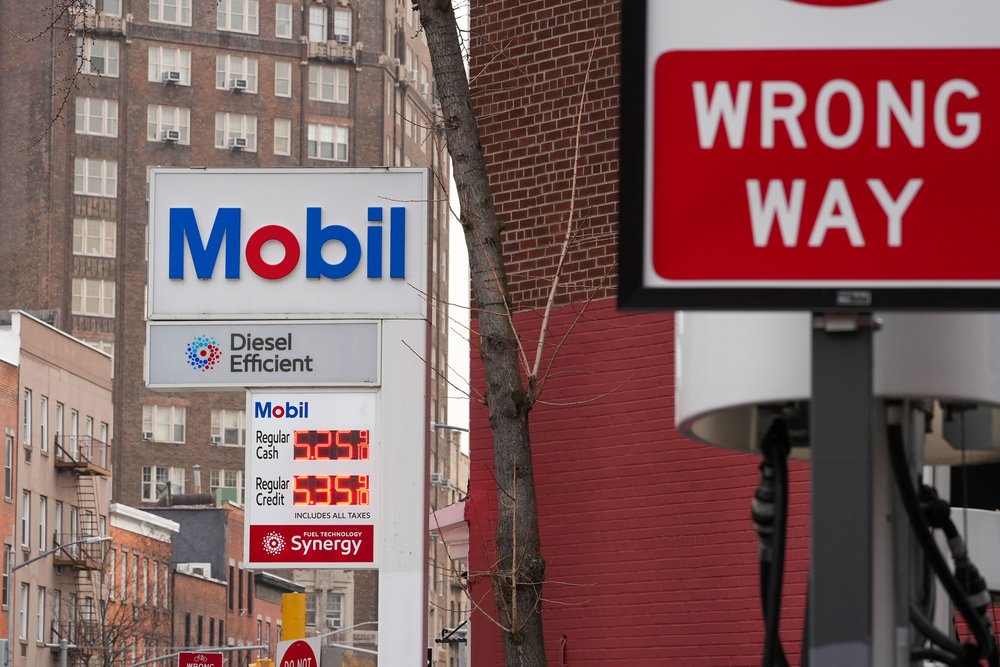Bill to make Big Oil pay $3 billion annually for NY’s climate costs gains support
May 19, 2023, 7 a.m.
Supporters of the Climate Change Superfund Act are confident it will pass this year, as the NYC comptroller sends a letter to Gov. Kathy Hochul asking her to back it.

New York taxpayers are paying billions of dollars to combat the effects of global warming, with municipalities spending more than half their budgets on climate change, according to a state estimate released last month. This is while the largest producers of greenhouse gas emissions, fossil fuels companies, continue to post record-breaking profits.
In a letter sent Friday to Gov. Kathy Hochul and elected officials, city Comptroller Brad Lander is calling on state leaders to support the Climate Change Superfund Act, a bill currently in committee in the state legislative process.
If passed, this legislation would shift some of the responsibility from taxpayers and onto the producers by requiring the largest greenhouse gas emitters to pay $3 billion annually for the next 25 years for the state’s climate change impacts, such as upgrades to drain the floodwaters from the city. That’s less than 2% of the 2022 profits of Saudi Aramco — the world's largest greenhouse gas emitter. The concept pulls from already-established federal and state Superfund programs, which make producers of land and water pollution pay for cleanups.
“We can’t keep supporting the oil and gas corporations driving this crisis,” Lander’s letter reads.
By the end of this decade, climate change will cost New York state $55 billion, and that’s on top of the U.S. Army Corps of Engineers’ $52 billion proposal to protect New York Harbor from sea level rise and storms.
“For the oil companies, $3 billion a year is lunch money,” said Blair Horner, executive director of NYPIRG, a nonpartisan and nonprofit research organization. “But for the state of New York it helps offset a staggering cost that otherwise taxpayers will have to pay.”
The monies collected from the biggest climate polluters would fund infrastructure improvements, upgrade stormwater and sewage systems, and improve grid stability and public health. Supporters of the bill are confident it will pass this year.
“I don’t think [$3 billion is] enough,” said state Assemblymember Jeffrey Dinowitz, the bill’s co-sponsor, who said the legislation has a lot of support. “We're not even asking [fossil fuels companies] to foot the entire bill to clean up the mess that they helped create, but we're asking them to contribute towards cleaning it up.”
As a low-lying coastal urban area, New York City is especially vulnerable to climate change. The comptroller’s office estimates nearly $200 billion worth of property is in the current floodplain – 44% more than a decade ago. This includes housing and major infrastructure such as transportation, power generation and waste management. This is expected to increase by about 40% by the 2050s.
Making polluters pay for the environmental damages resulting from doing business is nothing new. Federal laws requiring cleanup as part of enforcement are already on the books, such as the Clean Air Act and the Clean Water Act.
Shifting responsibility to the culprits has a lot of support from New Yorkers. A 2022 Data For Progress survey found that 73% of respondents supported such a measure. Separately, nearly 90% said oil companies should pay all, most or some climate costs.
“We need [fossil fuels companies] to do what’s right by the planet, what they should have been doing a long time ago,” said Louise Yeung, chief climate officer for the city comptroller’s office. “They need to be on the hook for the pollution that they have directly caused that is affecting our collective climate.”
Shell would not comment on the matter, and Exxon Mobil told Gothamist to get a statement from the American Petroleum Institute or the Business Council of New York State.
The Business Council's Vice President Ken Pokalsky said that placing the blame for climate pollution on the fossil fuel companies that produced the oil gives a “free pass” to the multitude of individuals and industries that consumed their climate-polluting products. He believes the responsibility for climate change is collective.
“It's a $75 billion tax increase no matter how they justify it,” Pokalsky said. “Structuring it as a damage claim from past activities is wrong and misleading.”
BP, Chevron, the American Petroleum Institute and Aramco did not respond to a request for comment.
“It's not like climate change is going to get better anytime soon,” Horner said. “There's no time to waste.”
No 24/7 mental health service: Staffing challenges limit NYC’s crisis response program Texas company wants to expand New York's largest landfill, despite local opposition